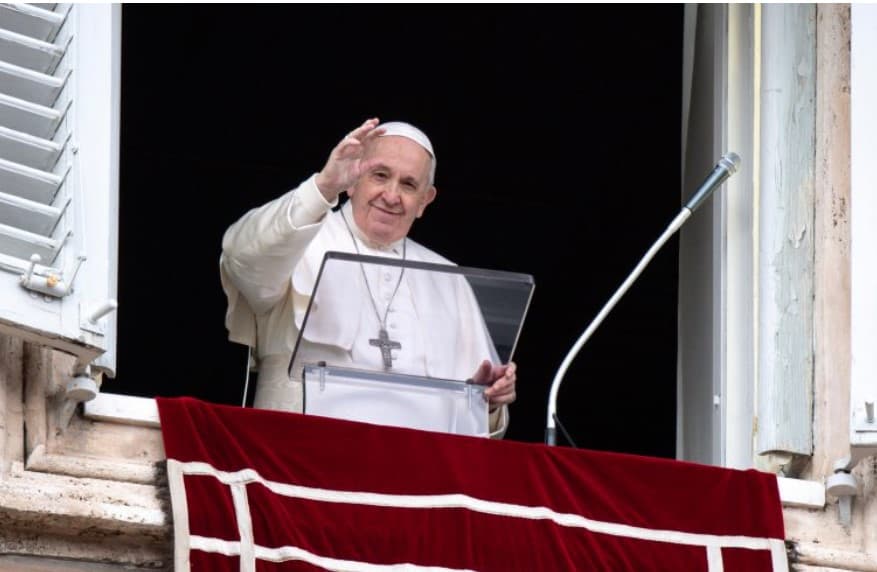ROME – Though without naming it specifically, Pope Francis appeared on Sunday to criticize a new law in Ukraine restricting the activities of the Russian Orthodox Church, a measure which has drawn support from his own Catholic flock in the country.
“In thinking about the laws recently adopted in Ukraine, I fear for the freedom of those who pray, because those who truly pray always pray for all,” Francis said during his noontime Sunday Angelus address Aug. 25.
“A person does not commit evil because of praying,” the pope said. “If someone commits evil against his people, he will be guilty for it, but he cannot have committed evil because he prayed.”
“Let those who want to pray be allowed to pray in what they consider their church,” Francis said. “Please, let no Christian church be abolished directly or indirectly. Churches are not to be touched!”
The pope’s remarks came just a day after Ukrainian President Volodymyr Zelensky formally signed Law 8371, a measure adopted by the country’s parliament which prohibits activities by the Russian Orthodox Church in Ukraine and bans the activities of any associated religious organizations affiliated with Moscow.
According to media reports, 265 parliamentarians voted for the bill, formally titled “On the Protection of the Constitutional Order in the Sphere of Activity of Religious Organizations,” while only 29 voted against it and another 4 abstained. According to the terms of the legislation, parishes and monastic communities of the Russian-backed church will have 9 months to sever ties with Moscow and affiliate with a Ukrainian denomination.
The Ukrainian government first introduced the measure in January 2023, and it’s stirred a wide global debate over religious freedom and national defense ever since.
Francis’s comments also came just one day after Patriarch Kirill of Moscow, head of the Russian Orthodox Church, had appealed to the pope and other world religious leaders “to raise their voices in defense of the persecuted believers of the Ukrainian Orthodox Church.”
In appearing sympathetic to Russian objections, Francis may risk alienating members of his own Catholic community in Ukraine. In a recent interview, Major Archbishop Sviatoslav Shevchuk, head of the Ukrainian Greek Catholic Church, the largest of the 23 eastern Catholic churches, defended the new law as a defense against Russia’s use of religion as a “neurotropic weapon.”
Shevchuk said the law offers protection against the ideology of the “Russian peace,” which involves the ideology of the “Russian world.” He said that although the law should protect religious freedom from manipulation, “it is important to monitor how it will be implemented in practice.”
RELATED: Ukraine Major Archbishop says new law against Russian Church is not unjust
The Orthodox Church of Ukraine (OCU) and the Ukrainian Council of Churches and Religious Organizations likewise have supported the measure.
“The Moscow Patriarchate justifies pogroms and restrictions on religious freedom, torture and murders of priests and pastors, and cynically tramples on God’s instructions and basic norms of universal morality,” the council said in a statement.
In response to the pope’s criticism Sunday, Ukraine’s embassy to the Holy See told reporters that his comments were off-based because the new law does not interfere with anyone’s private ability to pray as they wish.
Retired American lawyer Peter Anderson, who tracks issues in the Orthodox world, suggested that response is incomplete.
“It is true that the law does not prevent persons from praying in their homes. However, they will probably not be able to pray in their own church,” Anderson said, calling the pope’s comments “right on” when he insisted that churches should not be touched.
Given that the branch in Ukraine has no power to alter the charter of the Russian Orthodox Church, Anderson said, the new law likely means it will be liquidated and its assets transferred to churches backed by Kyiv.











